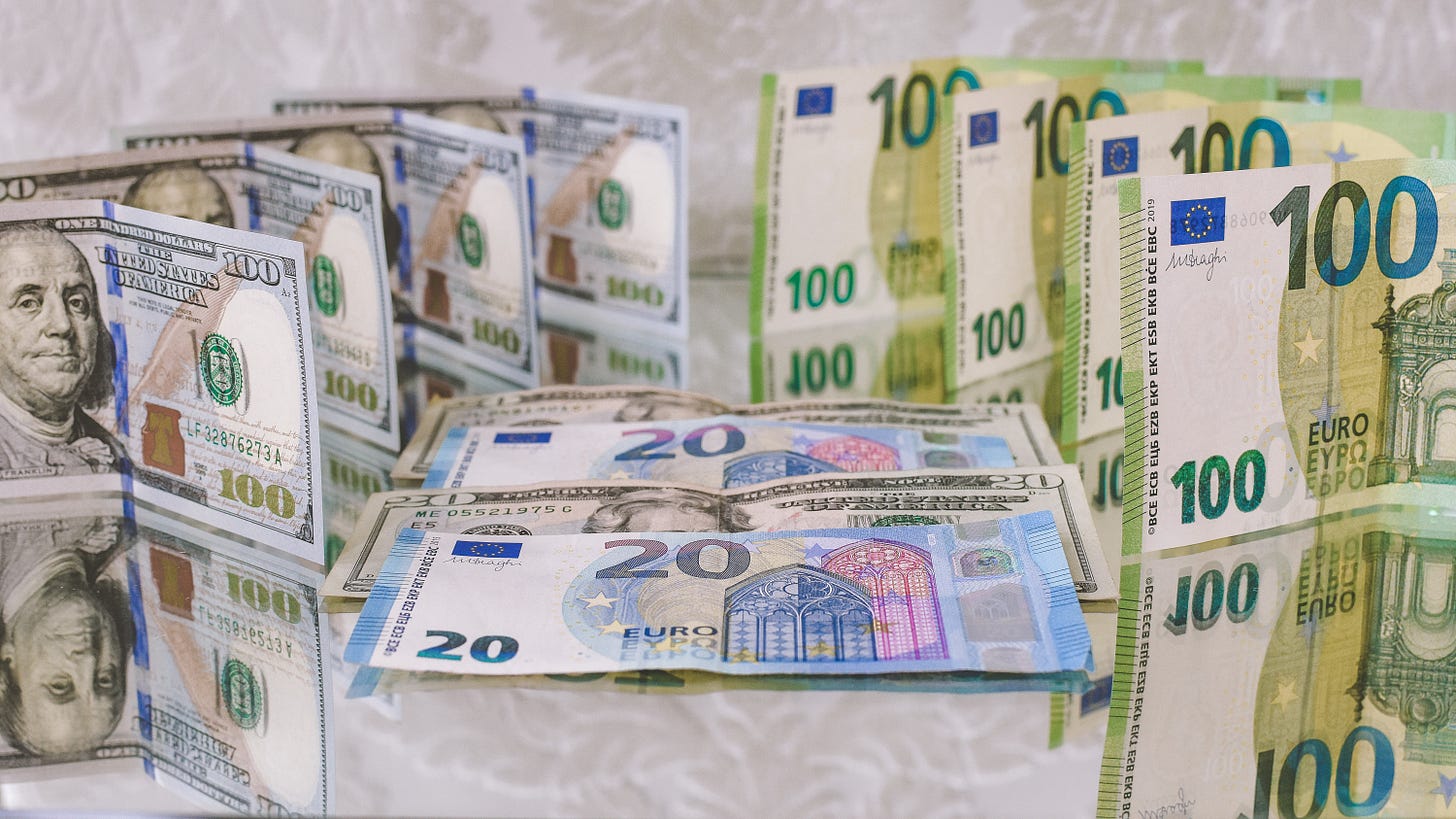Crypto won't save you
Turns out it is a lousy inflation hedge
Photo by Ibrahim Boran on Unsplash
Hello,
Welcome to Known Unknowns, a newsletter written by someone who never worked at the Fed, so she thinks mean reversion only applies to bond prices.
What does the Fed need to do?
I think we can now safely say inflation is not transitory. At least, if by transitory, we mean it will go away in a few months while the Fed keeps rates at zero and buys long-dated treasuries and mortgage bonds. Nope, that’s not happening.
Inflation has fallen a bit but remains high, and some indicators suggest it could even get worse before it gets better. I think it will get better, but inflation will still be high. When the “transitory” factors go away, we may be looking at 5 or 6% inflation because it is starting to get into the bones of the economy. And at that point, accommodative monetary policy (the current plan) will not cut it anymore.
I have a two-part Bloomberg interview with former Fed economist and Dartmouth professor Andy Levin about what the Fed needs to do. First up, we discuss what went wrong, not only at the Fed but in the markets. Both are counting on inflation returning to 3% soon. Levin faults that the Fed uses mean reversion models that don’t allow for a wage-price spiral and an over-fixation on the median forecast when they should be more concerned with tail risk.
OK, fair enough. So, how did the markets miss this? After all, they have money on the line and shouldn’t be beholden to institutional groupthink. Levin points out many Wall Street economists worked at the Fed and are using the same assumptions and models they learned there. They get hired for this insider knowledge. And if you look at breakevens, it seems they are still in lockstep with the Fed’s projections. But consumers aren’t buying it anymore.
So, will a 2% policy rate cut it? Levin is still not convinced the Fed needs to cause a recession. He thinks they should increase rates to a neutral level and then see where things are. That could be enough, and it is not recessionary. BUT with inflation this high, neutral rates are much higher than 2 to 2.5%. Neutral rates are 0% or 0.5% real. This means if inflation is 5%, that is the neutral Fed Funds Rate too. The risk is that the longer inflation continues, the harder it is to get rid of. And then neutral won’t cut it anymore; the Fed will need to go nuclear, also known as the Volcker option.
Do you know what also won’t help? Price controls! Just when you thought we couldn’t top student loan forgiveness when it comes to bad economic policies. We really are doomed to repeat the worst mistakes of the 1970s, aren’t we?
The recession we don’t want but maybe need
So, does that mean a recession is inevitable at this stage? Maybe. It looks likely for Europe, and China is starting to look like a big red question mark. Our future seems to hold one of two options: the Fed-engineered soft landing or a recession. But perhaps there is a third more likely option: a mild recession or just anemic growth for a while.
The Fed might pull it off, and inflation will fall as the world returns to normal. Or, more likely, it will fall to a new, higher level (4% or so), and the Fed will declare victory. But if that doesn’t happen, it will need to increase rates to reduce demand, and that will cause a recession—like the Fed did many times in the 20th century when it came in too hard and too late. Or it will just keep accommodating, and then inflation will cause a recession by creating a big pay cut for everyone in the economy.
The good news is, if we do have a recession, we are going into it in pretty good shape. Inventories are low, and so is investment. Normally lots of people lose their jobs because firms stop producing, run down inventories, and pull back on investment. That won’t happen this time. Household balance sheets are also in pretty good shape, and states still have lots of money from the pandemic, so they can keep spending too. This is not 2007.
No matter what happens with inflation, a recession will happen eventually because they are part of life. A perpetually booming business cycle creates bubbles and distorts risk-taking (especially if the non-stop boom is government-engineered; just look at China). This risks very severe recessions in the future. Recessions are never good; people lose jobs and wealth, especially people who invest in very risky assets. But some recessions are worse than others.
Speaking of, now that crypto has demonstrated that it has such a high Beta, can we stop saying it is a hedge for anything and just admit it is a purely speculative asset?
I am kind of worried that markets and commentators are so freaked out that the Fed going to neutral is going to be such a cataclysmic event. Do people really believe that our economy can only grow if the Fed keeps rates lower than r*? If that’s true, we are not on a sustainable path for growth and may need a little reset.
Important paper alert
I want to call attention to this very interesting research paper on the 401(k)-record-keeper industry. I know, that sounds horribly boring. It is more fun to say savers are getting shafted from high investment fees and double-dealing advisors who have not taken some fiduciary oath. But a broken record keeper market is potentially an even bigger deal. It means high fees, especially for small plans. And it is a problem that’s a lot harder to fix.
Until next time, Pension Geeks!
Allison

